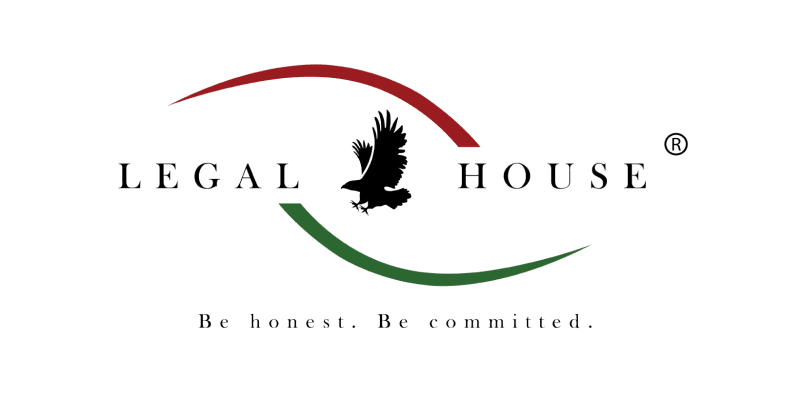Dubai, a city known for its soaring skyscrapers and culinary diversity, presents an exceptional opportunity for entrepreneurs looking to venture into the thriving world of cloud kitchen business. In this comprehensive guide, we will delve into the ins and outs of starting a cloud kitchen business in Dubai, focusing on key aspects such as setup costs, documentation requirements, permission approvals, and frequently asked questions.
Understanding the Cloud Kitchen Business in Dubai:
Before diving into the specifics, let’s first grasp what a cloud kitchen is and why it’s gaining immense popularity in Dubai.
A cloud kitchen (also known as a virtual kitchen) is a culinary concept that exclusively serves online delivery and takeaway orders. These kitchens operate without a traditional dine-in option and cater to customers primarily through various online platforms and third-party delivery services.
Setting Up Your Cloud Kitchen Business in Dubai:
- Crafting Your Business Plan: The first step in establishing a successful cloud kitchen business in Dubai is to develop a robust business plan. Define your niche, target audience, menu offerings, and delivery strategies. Market research is crucial to understanding your competition and identifying gaps in the market.
- Choosing the Right Location: The location of your cloud kitchen is pivotal. Consider factors such as proximity to residential areas, accessibility for delivery drivers, and rental costs. Dubai offers various free zones and commercial areas that are conducive to cloud kitchen operations.
- Business Registration: Register your cloud kitchen business with the Department of Economic Development (DED) or choose to set up within a free zone, depending on your preferences. Costs associated with business registration can vary depending on the location and business structure you choose.
- Legal Structure: Determine your business structure, which can be a sole proprietorship, Limited Liability Company (LLC), or a free zone company. Each structure has its own legal and financial implications.
- Licensing: Procure the necessary licenses, including a food service license and a trade license. These licenses ensure compliance with Dubai’s stringent regulations concerning food safety and hygiene.
- Equipping Your Kitchen: Invest in commercial kitchen equipment and assemble a skilled team comprising chefs, kitchen staff, and delivery personnel. Equipment and staffing costs will depend on the size and scale of your cloud kitchen.
- Online Presence: Develop an appealing website and establish a strong presence on popular food delivery platforms like Zomato, Uber Eats, and Deliveroo. Allocate a budget for marketing and advertising to attract a steady stream of customers.
Essential Documentation Requirements:
To initiate your cloud kitchen venture in Dubai, prepare the following key documents:
- Business Plan: A comprehensive business plan outlining your concept, target market, financial projections, and marketing strategies. and
- Trade License Application: Completed application forms specific to your chosen licensing authority.
- Lease Agreement: A copy of your lease agreement for the kitchen space.
- Menu: A well-crafted menu with clear pricing and dish descriptions.
- Food Safety Certificate: Evidence of compliance with Dubai’s food safety regulations.
- Health and Safety Certificate: Documentation confirming adherence to health and safety standards.
Advantages of starting cloud kitchen in Dubai :
Starting a cloud kitchen in Dubai offers several advantages, making it an attractive business opportunity in this thriving city:
- Growing Demand: Dubai’s population is increasingly turning to online food delivery and takeout options. A cloud kitchen caters directly to this growing demand for convenient dining experiences.
- Reduced Overheads: Operating a cloud kitchen eliminates the need for expensive dine-in facilities, reducing overhead costs associated with traditional restaurants.
- Cost-Effective: Setting up a cloud kitchen is generally more cost-effective than a brick-and-mortar restaurant. You can save on rent, decor, and staffing expenses.
- Flexibility: Cloud kitchens are versatile and can easily adapt to changing market trends and customer preferences. You can adjust your menu and offerings quickly.
- Delivery-Focused: Dubai’s infrastructure supports efficient delivery services, making it easier to reach a broader customer base. You can leverage popular delivery apps for increased visibility.
- Lower Risk: The lower upfront investment and overhead costs reduce the financial risks associated with traditional restaurant ventures.
- Scalability: Cloud kitchens can easily expand to multiple locations within Dubai or even globally, allowing for rapid growth and increased revenue.
- Data-Driven Decisions: Online ordering platforms provide valuable data and insights on customer behavior, helping you make informed decisions for menu optimization and marketing strategies.
- Diverse Customer Base: Dubai’s multicultural population presents an opportunity to cater to diverse culinary preferences, allowing you to experiment with various cuisines.
- Regulatory Support: Dubai’s government has introduced initiatives to support the food industry, making it easier to navigate licensing and compliance requirements.
- Global Exposure: Dubai’s international appeal can provide your cloud kitchen with global exposure, attracting both local and international customers.
- Innovation Opportunities: Dubai’s food scene encourages innovation and experimentation, allowing you to create unique and exciting food concepts.
Starting a cloud kitchen business in Dubai can be complex, but we specialize in providing expert guidance and tailored solutions to streamline the process. Legal House team is dedicated to saving you time, reducing costs, and ensuring your cloud kitchen venture flourishes in this dynamic culinary landscape.
Frequently Asked Questions:
How much is the initial investment required to launch a cloud kitchen in Dubai?
- The cost of starting a cloud kitchen in Dubai can vary significantly depending on factors like location, kitchen size, equipment, and branding. On average, it can range from AED 70,000 to AED 100,000 or more.
Do I need a specific license to sell homemade food in Dubai?
- Yes, you need a valid food service license to legally sell homemade food in Dubai. The Dubai Municipality regulates food businesses, and compliance with food safety and hygiene standards is mandatory.
Can I start a food business from home in the UAE?
- In the UAE, starting a food business from home is generally not permitted. Most food businesses, even small-scale ones, are required to operate from commercial kitchen spaces that meet specific regulatory standards.
How to start a catering business from home in Dubai?
- Starting a home-based catering business in Dubai involves several key steps. First, research and plan your menu and services. Next, obtain the necessary permits and licenses from the Dubai Municipality to ensure legal compliance. Set up a dedicated kitchen space at home that adheres to hygiene and safety regulations.
What are the typical ongoing operational costs for a cloud kitchen in Dubai?
- Operational costs for a cloud kitchen include rent, utilities, staff salaries, ingredient expenses, delivery commissions, and marketing expenditures.
How long does it take to obtain the necessary licenses for a cloud kitchen in Dubai?
- The licensing process in Dubai can take several days to a few weeks, depending on various factors, such as the completeness of your documentation and approvals from relevant authorities.
Are there specific regulations for food delivery packaging and labeling in Dubai?
- Yes, Dubai has regulations regarding food packaging and labeling for delivery orders. Ensure compliance with these regulations to avoid legal issues.
Can I operate multiple virtual restaurant brands from the same cloud kitchen in Dubai?
- Yes, it’s possible to operate multiple virtual restaurant brands from a single cloud kitchen. This strategy can help maximize kitchen utilization and cater to diverse customer preferences.






